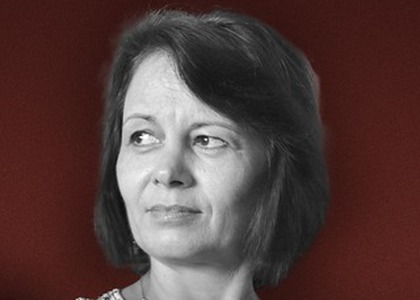> Interviews

Interview with Valentina Sandu-Dediu, musicologist and rector of New Europe College
Musicologist Valentina Sandu-Dediu and writer Andrei Pleșu are invited to tomorrow's Bucharest National Opera Conferences. The event is entitled "In line with the world" and the dialogue, moderated by philosopher Daniel Nica, will focus on academic research and intellectual synchronisation with the West. The dialogue of the three speakers will be interspersed with musical moments performed by soprano Marta Sandu-Ofrim, bass Leonard Bernad, accompanied on piano by Mihaela Vîlcea, and the special guest of the evening - pianist Andrei Vieru.
Ms Valentina Sandu-Dediu, on the occasion of the three decades of existence of the New Europe College, you are invited together with Andrei Pleșu to the Conferences of the Bucharest National Opera.I would like to ask you to take a step back in time and tell us how the New Europe College was born and what was the institution's path?
It all started when Mr Andrei Pleșu was invited to the Wissenschaftskolleg zu Berlin, an institute for advanced studies, in early 1990, and saw how such an institution works and the enormous benefit it can have on research. Then, sharing his dream of having such an institute in Bucharest, he found friends, supporters, leading intellectuals such as the then rector of the Wissenschaftskolleg zu Berlin, Wolf Lepenies, but also foundation directors, people involved in public administration in Germany and Switzerland, who helped him found the New Europe College in Bucharest in 1994. It all started small and spontaneous, with a few scholarship holders, but over time it grew, diversified - I like to say it was like a chamber ensemble that became symphonic -, became international, received international programmes, got a new house (in the restoration of which Mr Pleșu's right-hand woman, the architect Marina Hasnaș, was involved).
Our history is long and very rich, but it must be said that we currently have around 35 fellows from almost all regions of the globe, that we have very diverse programmes and that it is increasingly difficult to keep the original spirit and the original idea of Andrei Plesu; namely, to have a free, independent research, without thematic and other constraints.
What New Europe College has built, at least in Romania, is a culture of civilized dialogue, a culture of exchange of ideas, a neutral platform. We are an independent institute precisely because we live on private funds, which is of course very difficult, but that's another story... I think the institute has created an elite, in the best sense of the word "elite"; you might hear that word at the conference...
The fact that I have endured so long in a volatile and complicated world is also largely due to my colleague, Lelia Ciobotariu - Executive Director, who has a rare creativity and inventiveness. And together with her, we are like two sisters still sailing the ship.
The event is titled "In line with the world" and the dialogue will be oriented towards research and intellectual synchronization with the West. How do you propose to answer the question "What does it mean to be in line with the world?"when talking about academic research?
You'll find out more from the conference itself. We thought that this title "In line with the world" can be interpreted in many ways; it can indeed mean synchronization, but I personally am a believer in Lovinesque synchronism. Of course, it's not just about that, because you don't synchronize just for the sake of being fashionable. "In step with the world" can also mean distancing yourself from certain fashions that you may not agree with, and maybe it's okay not to agree with them.
So I'm sure all three speakers will explore this ambiguity of the title.
Translated by Vlad-Cristian Dinu,
University of Bucharest, Faculty of Foreign Languages and Literatures, MTTLC, year I
Corrected by Silvia Petrescu














